Organizer: YHouse (Yuko Ishihara and Benjamin Strosberg)
Date: February 13, 2018
Venue: Fordham University Bronx Campus, room TBA
Description:
Phenomenology is a philosophical tradition and movement initiated by Edmund Husserl in the early 20th century. Originally phenomenology was established as a scientific discipline that studies the nature of consciousness. But unlike most empirical studies of consciousness, such as empirical psychology or neuroscience, phenomenology does not try to explain consciousness in terms of the subpersonal mechanisms that underlie it nor does it rely on inductive methods. Rather, it attempts to provide first-person level descriptions of the invariant structures of consciousness just as they appear. Grounded in its methods that specifically take the first-person perspective seriously, phenomenology has aspired to be a scientific study of consciousness in its own right that complements other sciences based on a third-person perspective. Yet even after more than a century after the introduction of phenomenology, the question of whether and how we can reconcile these two perspectives still largely remains unanswered. Is there room for such reconciliation today when the empirical studies of consciousness seem to be making good progress on their own? If there is, how can phenomenology work together with the empirical sciences? This workshop brings together philosophers and scientists who are interested in exploring these questions together in an attempt to open up phenomenology to a constructive exchange with the sciences.
Speakers: Fred Wertz (Fordham University), Hayden Kee (Fordham University), Olaf Witkowski (Tokyo Institute of Technology/Institute for Advanced Study/House) and Katsunori Miyahara (Harvard University)
Program:
13:00-14:00 Lunch
14:15-14:30 Introduction by Yuko Ishihara
14:35-15:15 Fred Wertz: Phenomenology: Basic Concepts, Methods, and Applications to Psychology
15:15-15:30 Q&A
Break
15:50-16:30 Hayden Kee: Merleau-Ponty’s Phenomenological Reduction in The Structure of Behavior: An Alternative Approach to the Naturalization of Phenomenology
16:30-16:45 Q&A
Break
17:00-17:40 Olaf Witkowski and Katsunori Miyahara: The integrated structure of consciousness: A phenomenological critique of IIT
17:40-17:55 Q&A
18:00-18:30 General discussion
19:00 Common dinner
The workshop is open to all who have a serious interest in exploring the intersection of phenomenology and the sciences, and are able to participate for the entire workshop (dinner is optional). If you are interested in attending, please contact Yuko Ishihara (yukoishihar@gmail.com) and include a brief note about your interest in phenomenology.
See below for abstracts:
Fred Wertz: Phenomenology: Basic Concepts, Methods, and Applications to Psychology
This presentation provides a brief introductory sketch of phenomenology and its applications in psychology. Over the last 100 years, phenomenology has been developed by scholars throughout the full spectrum of disciplines and has traveled the globe. Originally named, articulated, and employed in philosophy by Edmund Husserl, phenomenology has contributed to the philosophical foundations, theoretical critiques, conceptual clarification, and research methods for the study of consciousness. It has had relevance on all disciplines that are concerned with consciousness, especially the field of psychology. This presentation clarifies some basic concepts of phenomenology, such as intentionality, and the distinctive features of phenomenological research methods, including the phenomenological and eidetic reductions and analyses. Also discussed is the "regional ontology" of psychology, where Husserl identified meaning, teleology, embodiment, agency, temporality, and sociality as essential for psychological theory. Phenomenological philosophy has developed through a series of "turns" over more than a century, and these have all influenced psychology: transcendental, hermeneutic, existential, and narrative phenomenology. The psychology that used these resources through the 20th century is traced. Attention is devoted to the method of research developed by Amedeo Giorgi for phenomenological psychology, illustrated by various research projects as time allows. Although distinctive and limited, this approach has open boundaries and affordances for future development.
Hayden Kee: Merleau-Ponty’s Phenomenological Reduction in The Structure of Behavior: An Alternative Approach to the Naturalization of Phenomenology
Approaches to the naturalization of phenomenology usually present the challenge as one of “rendering continuous” the methods and ontologies of phenomenology and natural science. Presupposed in this way of stating the problematic, however, is that there is an original discontinuity, a rupture between phenomenology and the natural sciences that must be remedied. I propose that this way of thinking about the issue is rooted in Husserl’s early discussions of the nature of phenomenology and its specific subject matter and methods as elaborated through the phenomenological reduction, which entails a bracketing of the natural sciences. However, in his first work, The Structure of Behavior, Merleau-Ponty presents a radically different approach to the phenomenological reduction, one that traverses the natural sciences and subsumes them into phenomenology from the outset. I reconstruct the argument for this position in The Structure of Behavior, and discuss consequences for current methodological issues involving the naturalization of phenomenology.
Katsunori Miyahara and Olaf Witkowski: The integrated structure of consciousness: A phenomenological critique of IIT
We explore the integrated (or unified) structure of consciousness through a critical examination of the integrated information theory of consciousness (IIT) from the perspective of philosophical phenomenology. While IIT remains ambiguous about the sense of integration pertinent to the experiential structure of consciousness, we argue drawing on the phenomenology of Aron Gurwitsch and Maurice Merleau-Ponty that the phenomenal content of conscious experience is integrated in a holistic sense––that is, each of its parts is what it is in virtue of other parts with which it co-exists. Based on this holistic concept of integration, furthermore, we contend that the integrated structure of consciousness extends into its subjective dimension. Finally, we examine the implication of this holistic and extended concept of integration for IIT’s account of the physical substrate of consciousness. We suggest that IIT introduce a new conceptual construct of noetic complex in their theory to explain how the subjective dimension of consciousness maps onto the physical substrate.

